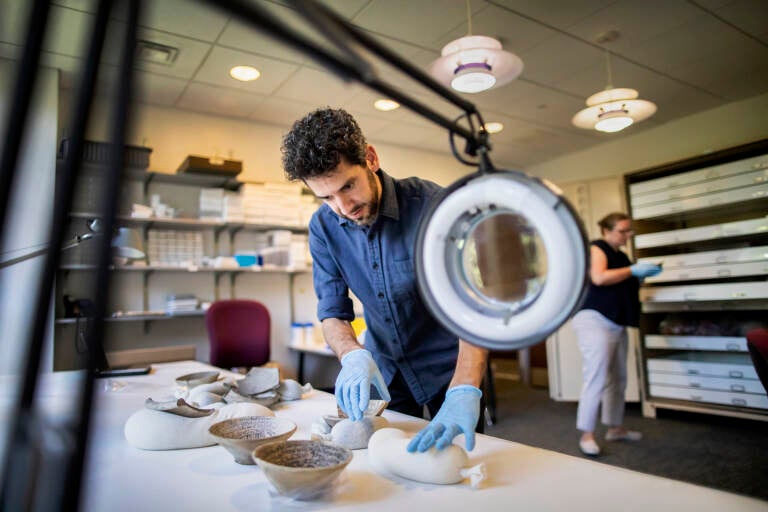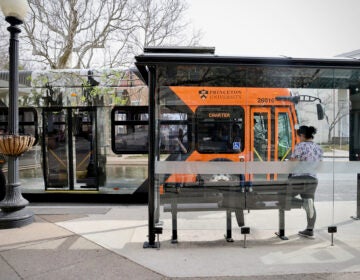Regional Roundup: September 12, 2022
New research shows microplastics throughout the Delaware River. Pandemic-born babies reach their toddler years. And, Penn Museum digs deeper into magical incantation bowls.
Listen 49:28
Researcher Simcha Gross lays out incantation bowls in the research room at the Penn Museum, nestling the objects atop long bags filled with silica gel for support. In the background, museum object keeper Katherine Blanchard pulls an item from the storage cabinet. (Eric Sucar/Penn Museum)
Microplastics may be smaller than a sesame seed, but their impact is enormous. They continue to break down in vital bodies of water — including the Delaware River watershed — where a new study found these pervasive plastic particles in every segment of the river. We’ll talk with Delaware River Basin Commission aquatic biologist Jake Bransky (@DRBC1961)
We take a look at the obstacles and risks for pandemic babies, as children born in the early days of Covid-19 lockdowns now reach their toddler years. Children’s Hospital of Philadelphia (@ChildrensPhila) expert Dr. Wanjiku Njoroge will discuss ongoing research about social skills, brain development, language and resilience for our youngest people, and how early intervention is the key to success for families in struggle.
A close look at magical amulets is underway at Penn Museum. Despite their existence for thousands of years, there’s still a lot to learn about incantation bowls, molded with common materials and inscribed with spells to keep spirits out of a home or even attract love. Simcha Gross, professor of Near Eastern Languages and Civilizations, joins us to talk about the project that hopes to make these bowls more understood and accessible to everyone.

Subscribe for more Radio Times
WHYY is your source for fact-based, in-depth journalism and information. As a nonprofit organization, we rely on financial support from readers like you. Please give today.





